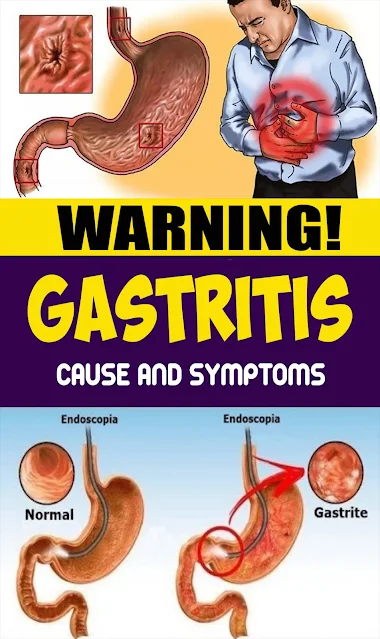Gastritis is a common digestive condition that affects millions of people worldwide. It is characterized by inflammation of the stomach lining, which can result in a range of symptoms and potential complications. In this article, we will delve into the causes of gastritis and its associated side effects, helping you gain a better understanding of this condition.
Understanding Gastritis
Gastritis occurs when the protective lining of the stomach becomes irritated or damaged. This irritation can lead to inflammation, which, if left untreated, can result in more severe complications. There are several factors that can contribute to the development of gastritis, and they can be broadly categorized into two groups: acute and chronic gastritis.
1. Acute Gastritis:
- Infections: Helicobacter pylori (H. pylori) bacteria are a common cause of acute gastritis. This bacterium can penetrate the stomach's protective lining, leading to inflammation and potentially more serious conditions if left untreated.
- Medications: The prolonged use of nonsteroidal anti-inflammatory drugs (NSAIDs), such as aspirin or ibuprofen, can irritate the stomach lining and cause acute gastritis.
- Alcohol: Excessive alcohol consumption can lead to gastritis by irritating and eroding the stomach lining.
- Stress: Severe stress, whether emotional or physical, can lead to gastritis in some individuals.
2. Chronic Gastritis:
- Autoimmune Diseases: In some cases, the body's immune system mistakenly attacks the stomach lining, causing chronic inflammation. This condition is known as autoimmune gastritis.
- H. pylori Infection: When H. pylori infection persists for an extended period, it can lead to chronic gastritis.
- Bile Reflux: A condition where bile from the small intestine flows into the stomach, irritating the lining over time.
- Chronic Alcohol Use: Long-term alcohol abuse can result in chronic gastritis, which can increase the risk of more severe complications, such as stomach ulcers and even stomach cancer.
Side Effects of Gastritis
Gastritis can lead to a variety of uncomfortable and potentially serious side effects, depending on its severity and duration. Common symptoms of gastritis include:
1. Upper Abdominal Pain: A burning or gnawing pain in the upper abdomen is a hallmark symptom of gastritis. This discomfort is often described as a "gnawing" or "burning" sensation.
2. Nausea and Vomiting: Gastritis can cause nausea and may lead to vomiting, which can further irritate the stomach lining.
3. Bloating and Fullness: Some individuals with gastritis may experience bloating, a feeling of fullness, or a sensation of "having a rock in the stomach."
4. Loss of Appetite: Gastritis can diminish your desire to eat, potentially leading to weight loss over time.
5. Blood in Stool or Vomit: In severe cases, gastritis can result in bleeding from the stomach lining, leading to the presence of blood in the stool or vomit.
6. Anemia: Chronic gastritis can reduce the body's ability to absorb essential nutrients, potentially leading to anemia, which can cause fatigue and weakness.
7. Increased Risk of Complications: If left untreated, chronic gastritis can increase the risk of developing stomach ulcers, bleeding, and even stomach cancer in some cases.
Conclusion
Gastritis is a common digestive condition that can cause a range of symptoms and complications. Understanding the causes and side effects of gastritis is crucial for early diagnosis and effective management. If you suspect you have gastritis or are experiencing any of the symptoms mentioned, it is essential to seek medical advice promptly. With proper treatment and lifestyle changes, many cases of gastritis can be managed effectively, improving the quality of life for those affected by this condition.

